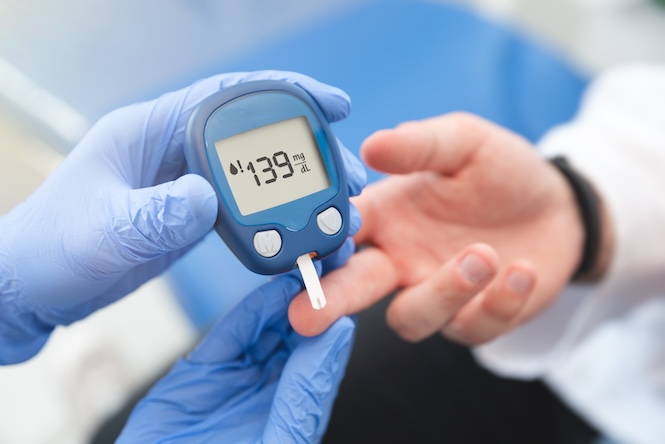You brought this on yourself with poor eating habits and bad lifestyle choices.”
If you or someone you know has diabetes, you have likely heard this harmful misconception or even thought it yourself.
While the federal government’s proposed pharmacare legislation has put a spotlight on diabetes – with diabetes medications to be among the first prescriptions included in a new national pharmacare plan – erroneous assumptions and negative judgments about the condition persist.
It is time that we erased the stigma surrounding diabetes – not only the one that exists in society, but also the internalized blame and shame that people with diabetes carry.
Close to four million people in Canada have been diagnosed with diabetes – type 2 is the most common form – and the number continues to rise.
Yet, despite diabetes being one of the most common chronic conditions in Canada, it is loaded with negative perceptions. I know this firsthand.
When I was first diagnosed with diabetes, doctors assumed I had type 2 – after all, who gets “juvenile” diabetes at age 50? No other chronic condition comes with feelings of guilt and shame quite like diabetes. The diagnosis left me feeling like I had failed – that it was my fault.
It was not until almost a year later – after medications and lifestyle changes didn’t work – that doctors discovered I had type 1 diabetes – an autoimmune condition.
When I heard that, I have to admit, my immediate reaction was one of relief. If it was not type 2, then it was not my fault – which is untrue; it’s not anyone’s fault they have diabetes.
The internalized negative attitudes towards diabetes come from the messages – spoken and unspoken – we hear regularly: you have diabetes because you are lazy, overweight, or make unhealthy food choices.
Not only are these perceptions wrong, they are harmful. They overlook important uncontrollable risk factors including genetics, environment and social determinants of health. They hurt the mental well-being of those with diabetes and they can jeopardize our health by deterring us from managing the condition – such as skipping blood glucose tests, not injecting insulin when out in public or not even admitting to having diabetes.
Seven years after my diagnosis, internalized blame and shame remain a struggle. I still sometimes feel I am being judged if I order french fries or eat a random cookie. I still sometimes feel like a failure if my glucose monitor shows my numbers are out of range. I still sometimes fail to treat a low blood sugar right away.
(To this day, my best friend talks about the time I had severe hypoglycemia while driving through a major traffic jam and nobody in the car had any idea until my glucose monitor alarm started really screaming.) I still sometimes silence those alerts and alarms during meetings or events because I don’t want to bring attention to myself.
Diabetes Canada is spearheading research into just how prevalent the stigma is. The insights will shed light on how it affects people with diabetes and why it is important that we change how diabetes is perceived.
A vital part of changing the conversation around diabetes is changing the internal dialogue those of us with diabetes have. For me, this includes being fine with leading the way to the buffet table at a function because my blood sugar is dropping (it’s rather hilarious how quickly a line forms behind me). This includes treating my devices as fashion accessories (who said stickers are just for kids?) and visibly wearing them.
When I was travelling through Asia last year, an American tourist stopped me and asked if the device on my arm was a glucose monitor. She had been diagnosed with type 2 and her doctor suggested she get one. She had never seen someone with one before, wasn’t sure how they worked and was nervous about wearing one.
I explained how my glucose monitor worked and, after I answered her questions, she said she was going to give one a try when she got home.
It was an important lesson learned. Because I was not hiding my diabetes, I was able to help someone feel better about managing theirs.
By talking more openly about diabetes, together, we can dispel the misconceptions and erase the stigma people with diabetes have carried for far too long.
By Sonia Yung
Sonia Yung is the Board Chair for Diabetes Canada and strives to live unapologetically with Type 1 diabetes.


